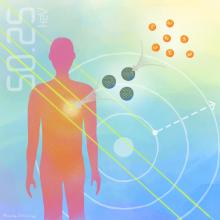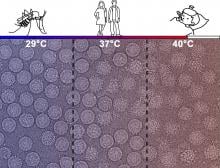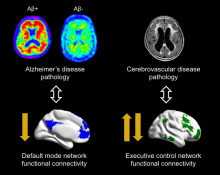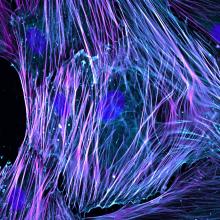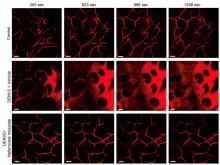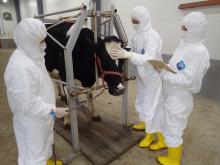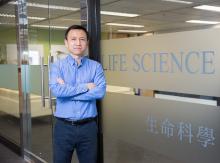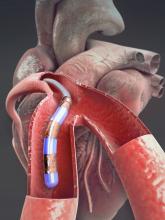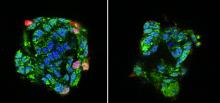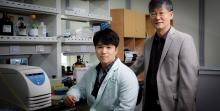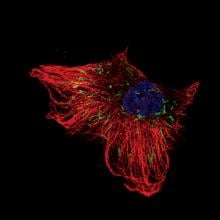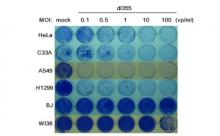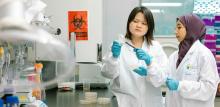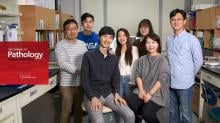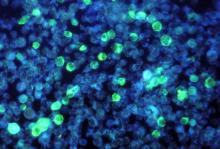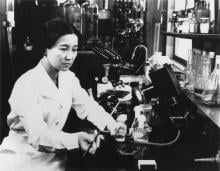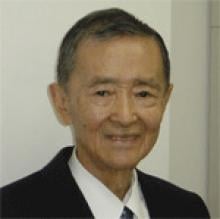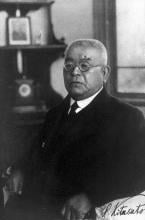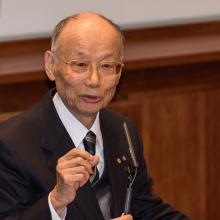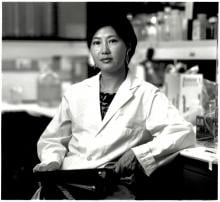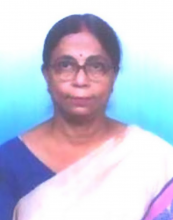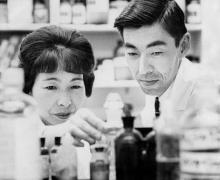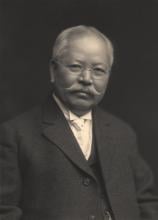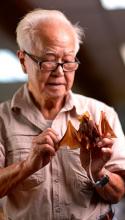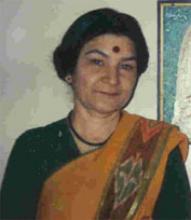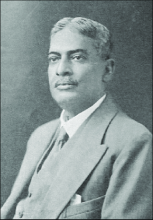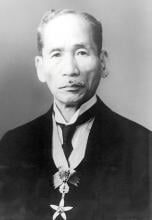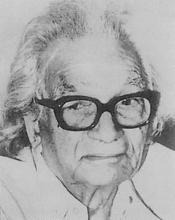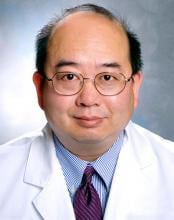Diseases
News
30 Sep 2019
X-rays could be tuned to deliver a more effective punch that destroys cancer cells and not harm the body.
20 Sep 2019
Researchers from Duke-NUS Medical School, in collaboration with the Agency for Science, Technology and Research’s Bioinformatics Institute, and the University of Texas Medical Branch, USA, have discovered that the dengue virus changes its shape through mutations in Envelope protein to evade vaccines and therapeutics. The study also gives insights on the types of treatment strategies to use at different stages of infection. This could give rise to new approaches in vaccine development and treatment for dengue disease.
17 Sep 2019
Differential changes in brain functional network connectivity in people with mild cognitive impairment may aid early tracking of Alzheimer’s disease and cerebrovascular disease.
12 Sep 2019
The formation of excess fibrous tissue in the heart, which underlies several heart diseases, could be prevented by inhibiting specific proteins that bind to RNA while its code is being translated.
29 Aug 2019
Successfully identified the existence of two types of 'gastric isthmus stem cells' with different roles and characteristics using a multi-color identification technology. Expects to clarify and treat causes of gastric diseases such as cancer.
27 Aug 2019
New study reveals enzyme plays key role in potentially fatal dengue haemorrhagic fever and shock; suggests clinically approved tryptase inhibitor could be key in future targeted treatment.
13 Aug 2019
UK Research and Innovation and its partners are funding 13 research programs, building collaborations across 10 countries, including Japan, China, Singapore and India.
02 Aug 2019
Scientists have succeeded in reducing levels of the bovine leukemia virus (BLV) in cows with severe infections by combining an immune checkpoint inhibitor and an enzyme inhibitor. The finding could be utilized to control other diseases in cattle, and perhaps in humans someday.
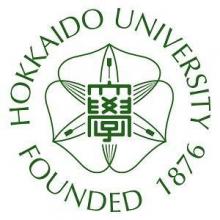
16 Jul 2019
New insight into a protein’s role in regulating tight DNA packing could have implications for combating tumor cell resistance to anti-cancer treatments.

15 Apr 2019
A delegation from Hong Kong Baptist University (HKBU) (HKBU) won a Gold Medal with the Congratulations of Jury, a Gold Medal and a Silver Medal at the 47th International Exhibition of Inventions of Geneva held in Switzerland from 10 to 14 April 2019.
27 Mar 2019
A new model may help clinicians predict the possibility of death from severe dengue infection.
21 Mar 2019
Researchers at Universiti Teknologi MARA reported in the journal Medicine a rare case of hepatocellular carcinoma cells migrating from the liver and settling in the jawbone and shoulder blade of a 61-year-old man.
14 Mar 2019
A new method to diagnose cancer cells inside lymph nodes could allow doctors to treat cancers before they spread around the body.

11 Mar 2019
An annual influenza season forecasting challenge issued by the US Centers for Disease Control provides unique insight into epidemic forecasting, according to a study published in the journal Scientific Reports.

11 Mar 2019
Secure your place today with 20% code ARN20 off the standard rate and join the discussion.
07 Mar 2019
Molecular analysis reveals that long-tailed macaques from Malaysian Borneo host a previously unidentified species of Plasmodium malaria parasite.

07 Mar 2019
Researchers from The Hong Kong University of Science and Technology (HKUST) (HKUST) credited with important translational science and early discovery work
Significant opportunity to replicate collaborative model to develop pipeline of extracellular tRNA synthetase therapeutics
06 Mar 2019
A research team consisting of scientists from The Hong Kong University of Science and Technology (HKUST) (HKUST) and Beijing Tiantan Hospital have uncovered the mutational mechanism of how a rare and deadly brain cancer –secondary glioblastoma (sGBM) – progresses from its less lethal type.
06 Mar 2019
A research team has discovered a new mechanism that could delay the degeneration of injured nerves, bringing new hope to the treatment of nerve damage and neurodegenerative diseases such as Parkinson and Amyotrophic Lateral Sclerosis (ALS).
05 Mar 2019
An international team has developed an attachable guidewire that can move and steer towards a desired direction inside complicated blood vessels. The technology will contribute to increasing the success rate of heart disease treatment with a shorter cardiovascular disease surgery time and higher accuracy.
26 Feb 2019
A key cell receptor that facilitates influenza A virus infection has been identified following decades of research.
19 Feb 2019
Hepatocellular carcinoma diagnosis, prognosis and treatment could improve by identifying a closely associated protein.
15 Feb 2019
Uncovered details of a molecular pathway in cancer cells could lead to improved treatment.
01 Feb 2019
Turning off a bone receptor protein could potentially treat osteoporosis in children without affecting bone growth.
29 Jan 2019
An engineered virus kills cancer cells more effectively than another virus currently used in treatments, according to Hokkaido University researchers.
22 Jan 2019
A combined treatment may help tackle the rise of E. coli PI-7 in Saudi Arabia’s wastewater systems.
18 Jan 2019
An international team of researchers has identified a novel route that regulates the signaling pathways induced by extracellular matrix (ECM). This may serve as a new diagnostic marker and therapeutic target in the fight against chronic liver diseases.
17 Jan 2019
The mistletoe fig reduces toxic oxidative stress in diabetic rat brains, while also keeping the cortex wrinkly and improving cognition.
17 Jan 2019
A nucleus-penetrating probe could lead to therapies for virus-related tumours.
Events
Sorry, no events coming up for this topic.
Researchers
Sorry, no researchers coming up for this topic.
- « first
- ‹ previous
- 1
- 2
- 3
Giants in history
Ruby Sakae Hirose (1904 – 1960) was a Japanese-American scientist whose research contributed significantly to our understanding of blood clotting, allergies and cancer.
Iranian physician and bacteriologist Azar Andami (8 December 1926 – 19 August 1984) developed a cholera vaccine to combat an outbreak that swept through the Middle East, India, Southeast Asia, and Africa in 1937.
Michiaki Takahashi (17 February 1928 – 16 December 2013) was a Japanese virologist who developed the first chickenpox vaccine.
Irene Ayako Uchida’s (8 April 1917 – 30 July 2013) strides to understand genetic diseases such as Down syndrome paved the way for early screening of chromosomal abnormalities in foetuses.
Baron Kitasato Shibasaburo (29 January 1856 – 13 June 1931) was a Japanese physician and bacteriologist whose work led to a new understanding of preventing and treating tetanus, diphtheria and anthrax.
By isolating soil microorganisms and studying the compounds they produce, Satoshi Omura (born 1935) discovered almost 500 organic compounds with unique properties that were produced by these microorganisms, including many new antibiotics.
Chinese-American virologist and molecular biologist Flossie Wong-Staal (27 August 1946 – 8 July 2020) was the first scientist to clone HIV and determine the function of its genes.
Maharani Chakravorty (1937 – 2015) was one of India’s earliest molecular biologists whose research paved the way for advances in the treatment of bacterial and viral infections.
Husband and wife team, Kimishige (3 December 1925 – 6 July 2018) and Teruko Ishizaka (28 September 1926 – 4 June 2019) discovered the antibody class Immunoglobulin E (IgE) that triggers allergic reactions. They also discovered that IgE antibodies attach to white blood cells, known as mast cells, releasing histamine, which causes allergic reactions.
Japanese chemist Takamine Jokichi (3 November 1854 – 22 July 1922) founded the Tokyo Artificial Fertilizer Company, where he isolated a starch-digesting enzyme (named takadiastase) from the fungus Aspergillus oryzae.
Lim Boo Liat (21 August 1926 – 11 July 2020), a leading authority in the conservation of Malaysia’s biological diversity, had his initial interest in the outdoors piqued by nature lessons in school. Lim, who helped found the National Zoo of Malaysia and re-establish the Malaysian Nature Society, had a particular interest in researching zoonotic diseases associated with small animals.
A pioneer of bio-organic chemistry, Darshan Ranganathan (4 June 1941 – 4 June 2001) is remembered for developing a protocol for synthesising imidazole, a compound used to make antifungal drugs and antibiotics. Widely considered India’s most prolific researcher in chemistry, she also published dozens of papers in renowned journals on protein folding, molecular design, chemical simulation of key biological processes, and the synthesis of functional hybrid peptides and nanotubes.
Indian scientist and physician Upendranath Brahmachari (19 December 1873–6 February 1946) is best known for creating a drug called Urea Stibamine, used to safely and reliably treat visceral leishmaniasis (or Kala-azar), a severe infection caused by the Leishmania parasite.
Filipino chemist and pharmacist Manuel A. Zamora (29 March 1870 – 9 July 1929) is best remembered for his discovery of the tiki-tiki formula to combat beriberi, a disease caused by Vitamin B1 deficiency.
Indian organic chemist Asima Chatterjee (1917 to 2006) studied the medicinal properties of plant products, especially compounds known as vinca alkaloids.
Umetaro Suzuki (7 April 1874 – 20 September 1943) was a Japanese scientist best remembered for his research on beriberi, a disease caused by vitamin B1 deficiency, characterized by limb stiffness, paralysis and pain.
Salimuzzaman Siddiqui (19 October 1897 – 14 April 1994) was an artist and chemist from Pakistan whose research focused on natural products from plants.
Barry Paw (29 August 1962 – 28 December 2017) was a biologist and oncologist who discovered several novel genes and their functions in red blood cells.



